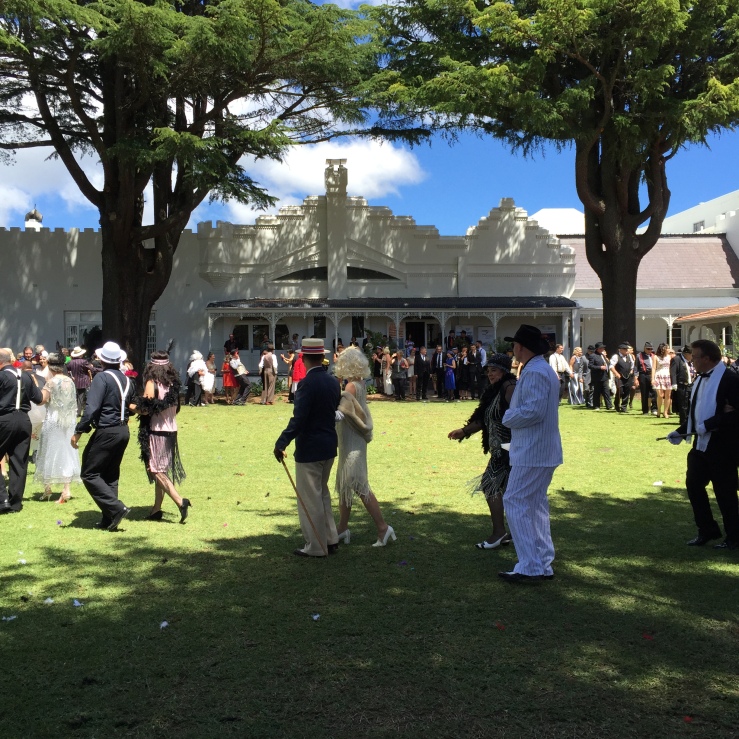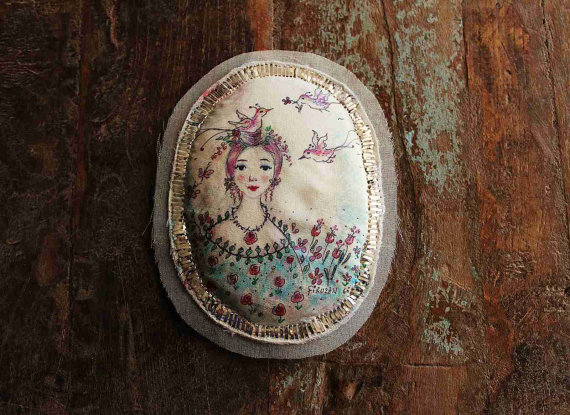In January I read three books, which I wrote about here. Since then, it’s taken me the last 11 months of 2014 to read another 10. That means I’ve only read 13 books in total this year! This is probably less books per year than ever before. I think it’s mostly because I’ve used a lot of my commute time lately to listen to podcasts. Also, I read The Luminaries which was a mammoth tomb and took forever!

So, from start to finish, these are the last 10 books I’ve read this year:
1) Let’s talk about diabetes with owls, David Sedaris
Somehow I managed to go my whole life without ever knowing who David Sedaris was. When a friend leant me this collection of short stories, I became a bit obsessed with finding out more about this hilarious man. Now I want to read everything he’s ever written. This book made me laugh till my cheeks felt like they’d been doing squats!
2) Puckoon, Spike Milligan
Conversely, this was the most ridiculous book I’ve ever read. My father in law gave it to me which was the only reason I read it and I really think that if it wasn’t so short I would have quit. I don’t find The Goon Show or anything else that Spike ever wrote to be funny so it’s not surprising that this was not up my alley at all. It’s an Irish comedy where the characters in the book interact with the author and I found it all a bit silly.
3) Masters of Doom, David Kushner
Now this is also not something I’d normally read but I would TOTALLY recommend it. I love books about people who have changed the world as we know it in some way. This is about the two guys who basically created the computer game industry. They are most famous for writing Commander Keen, Doom and Quake.
As the author says at the end of the book, “It’s both amazing and frustrating to me that the billion dollar industry of computer gaming is a mystery to so many people. The story of John Carmack and John Romero is a classic American adventure that captured the birth of a new medium and the coming of age of two compelling and gifted young people. By telling it, I hope to give gamers the respect and understanding the deserve”.
4) Mrs Warren’s profession, George Bernard Shaw
Sometimes when I don’t know what to read next, or when I need a break between books, I read plays. I like Mr Shaw, he wrote good stuff, this play included.
5) My prisoner, my friend, Christo Brand
Can everyone please read this book? It’s such a good one. Christo was Nelson Mandela’s prison guards on Robben Island for 12 years. He became a confidant, then a friend and then once Nelson was Prime Minster, Christo became his employee. This book reiterated how much Nelson valued education. While in prison, he studied day in and day out and he encouraged the other freedom fighters to do so too. One of my favourite quotes from Nelson’s own book, Long Walk to Freedom is: “Education is the great engine of personal development. It is through education that the daughter of a peasant can become a doctor, that the son of a mine worker can become the head of the mine, that a child of farm workers can become the president of a nation. It is what we make out of what we have, not what we are given that separates one person from another.”
I heard about this book at about the same time I decided to go to South Africa this year so it was good pre trip reading!
6) Between shades of grey, by Ruta Sepetys
No, not 50 shades of grey! This one is a novel about a family sent to a work camp in Siberia during the second world war. The protagonist is a young Lithuania girl and the book was deliberately written from a teenage perspective. The author met many survivors from Siberia who were teenagers at the time of deportation. They claimed that they had a greater will to live than many of their adult counterparts.
The notes at the end of this book about the way the genocide of Baltic people was never spoken about reminded me a lot of the Armenian genocide. Also, reading it straight after the book about Nelson Mandela made me think that freedom is something humans seem to have to continually relearn!
7) The Luminaries, by Eleanor Catton
I’ve read many reviews of this book where people have said that they found The Luminaries hard to put down. Well I myself actually found it totally put downable! And I did, in fact, put it down many times, sometimes taking weeks before I was ready to go back to it. There’s about 800 pages and of those, about 600 pages were utter tedium. Just as I had decided that I was going to quit, my sister insisted that it was about to get good so I pushed on. It did get better for a little while but then continued to bore me.
There’s lot of cleverness, in that each chapter is exactly half the length of the previous chapter. There’s also a whole star sign thing going on where each of the main characters is aligned with a star sign and characters on opposite ends of the astrological chart affect each other. However overall, it really felt like a very long winded whodunnit. And while there were certain turns of phrase that I found amusing, on the whole, I didn’t really think the writing was amazing. Sorry Eleanor.
8) The fault in our stars, by John Green
I read this book after the film came out and only because the internet was flooded with John Green interviews and he sounded like an awesome dude. After reading just a few pages, his writing confirmed his awesomeness.
This book is both hilarious and devastating. It’s witty, the characters are beyond quirky and I loved every bit of it. I’m not sure I can bring myself to see the film, my heart is still aching from the novel. Cancer stories get under my skin.
9) The Happiness Project, by Gretchen Rubin
I remember Alain de Botton once saying that the mere mention of a self help book makes him do a ‘quick-back-out-of-the-room-and-break-into-a-sprint manoeuvre’. That’s how I initially felt about this book. I’d heard about it for a long time but I’m not into self help so I only read it following David’s recommendation. And naturally I ended up loving it.
In the book, Gretchen talks through research she’s done about the habits of supremely happy human beings. It made me think a lot about what makes me happy and also about why some people aren’t happy and may never be.
One of the things that Gretchen felt was making her unhappy was all the massive lumps on her to do list that just never seemed to get done. I too have completely overzealous and seemingly unrealistic to do lists and it bothers me when I can’t cross things off them. After I finished this book, I started to think about the pockets of time that I waste and could use to be more productive.
10) Sarah’s key, by Tatiana de Rosnay
In this novel, the chapters alternate between the second world war era and the time sixty years later. One of the key characters is a reporter trying to find out more about what happened during the 1942 round-up of Jewish people in France. I had never heard of the Vel’ d’Hiv’ Roundup so I found this story interesting and also completely tragic.
So that’s me. What have you all been reading?












































